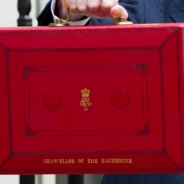
It must be said that there seemed to be relatively few changes announced earlier today. I had expected more extensive measures to generate further tax revenues because of the reversal of tax credits.
A brief summary follows. But I have a hunch that the 2016 Finance Act may be a little more substantial. As ever, the real work will begin when the Bill is published.
1. The government plans to levy an additional 3% SDLT on the acquisition of Buy-To-Let residential properties and second homes, from April 2016. Given that this seems to be in response to dire warnings from the Bank of England that the increase in uptake of BTL is one of the main risks to the UK economy, the delay in implementation looks unlikely to discourage participation in the short term. Again, companies seem not to be caught.
The corresponding SDLT filing/payment window will also be shortened from 30 days to 14 days, in c2017/18.
2. A similar change is planned for Capital Gains Tax, so that CGT on residential properties will be payable within 30 days of a sale’s completion.
3. Capital Allowances – disposal values will now be fixed where one of the main purposes of a transaction is to obtain a tax advantage through a reduced Balancing Charge or increased Balancing Allowance. The legislation will have effect from 25 November.
4. Tax-Free Childcare – the new regime, whose introduction has been delayed until 2017, will now be more restricted in terms of availability:
- The upper income limit beyond which parties will be ineligible will fall from £150,000 to £100,000, and
- Parents will basically have to work 16 hours a week, instead of just 8.
This may mean that even more parents will want to remain in the current scheme – assuming that the choice will in the end be retained.
5. Small Business Rate Relief will be extended for another year.
6. Enterprise Zones are to be made more widely available. Whether or not they will be at all attractive to taxpayers may depend at least in part on how much faith those taxpayers have that HMRC will not try to reverse investors’ tax relief claims several years down the line, as per Film Partnerships, BPRA investments, etc.
7. It looks like the Renewable Heat Incentive is set to 'go the way of' solar pv panels, saving the chancellor £700million. And yet he claimed in his speech that support for low-carbon electricity and renewable will more than double.Go figure
8. There will be a new Apprenticeship Levy for larger businesses that each have payroll costs in excess of £3 million.
9. There will be new penalties for the General Anti-Abuse Rule, and measures to prevent avoidance in relation to:
- Disguised Remuneration
- Stamp Duty Land Tax, and
- Corporate Intangibles
10. The company car benefit 3% diesel supplement will now be retained until 2020/21 - it was originally supposed to be abolished from next year.
11. As part of moving tax to a digital framework, HMRC is also calling for evidence in relation to the use of cash in facilitating evasion / the hidden economy. Readers may remember that the notion that cash payments were “immoral” was floated around 3 years ago - and robustly rejected. And most advisers will be aware that HMRC really, really dislikes cash. Unfortunately, many people prefer it.
The request is couched in terms of observing that cash payments are naturally on the wane, so we might as well get rid of them entirely. One might simply ask why HMRC remains so hung up about cash payments if they are on the decline. It may also be worth pointing out that the UK is, according to a report by the OECD, supposed to be aware that electronic sales suppression is a “massive” threat to global tax revenues. Perhaps we should stick with cash?
Quite apart from general annoyance at HMRC’s approach, is that electronic transactions are expensive and the cost for even quite modest businesses can run to several thousands of pounds – say 10% of net profits. Each person in the UK has effectively paid a small fortune to bail out the banks, and the idea that it may become mandatory to pay them through the nose just to move one’s own money around, just to keep HMRC happy... does not sit well at all. About as well as the meaningless reassurance that HMRC does not “intend” to reverse-engineer the data it hoovers up from electronic payment providers to evaluate the profiles of those business' customers. If HMRC really didn’t want to apply such powers in that way, then they could simply legislate to prevent it.


Please register or log in to add comments.
There are not comments added